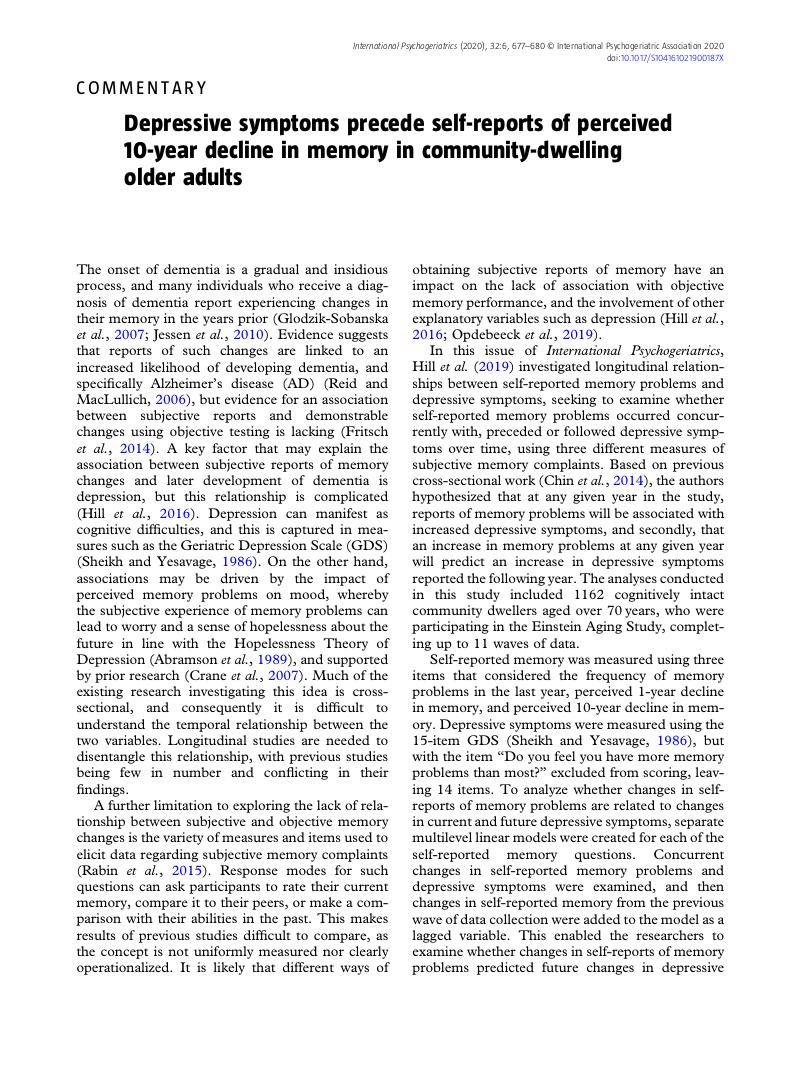Crossref Citations
This article has been cited by the following publications. This list is generated based on data provided by Crossref.
Sachdev, Perminder S.
2022.
The default mode network, depression and Alzheimer’s disease.
International Psychogeriatrics,
Vol. 34,
Issue. 8,
p.
675.
Clarke, Yusuf
Morgello, Susan
and
Byrd, Desiree A.
2023.
Age, cognitive status, and accuracy of ADL self-reports in adults living with HIV.
AIDS Care,
Vol. 35,
Issue. 2,
p.
289.





